
Below you will find every letter of the Russian alphabet: Click the play button and listen to the name of the letter and its sound.; Click any letter and you will go to the lesson that shows how to pronounce it properly.

The Russian Alphabet. Russian alphabet consists of 33 letters divided into 10 vowels, 21 consonants and 2 letters which do not designate any sounds.
The Russian alphabet is derived from the Cyrillic alphabet (pronounced si-‘ri-lik). In turn, the Cyrillic alphabet was developed at the Preslav Literary college in the First Bulgarian Empire in the 9th century.
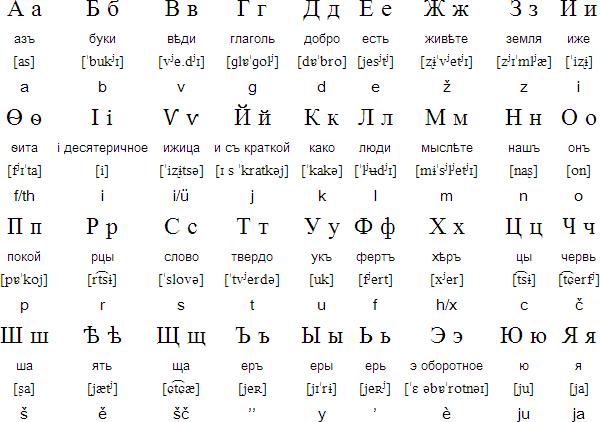
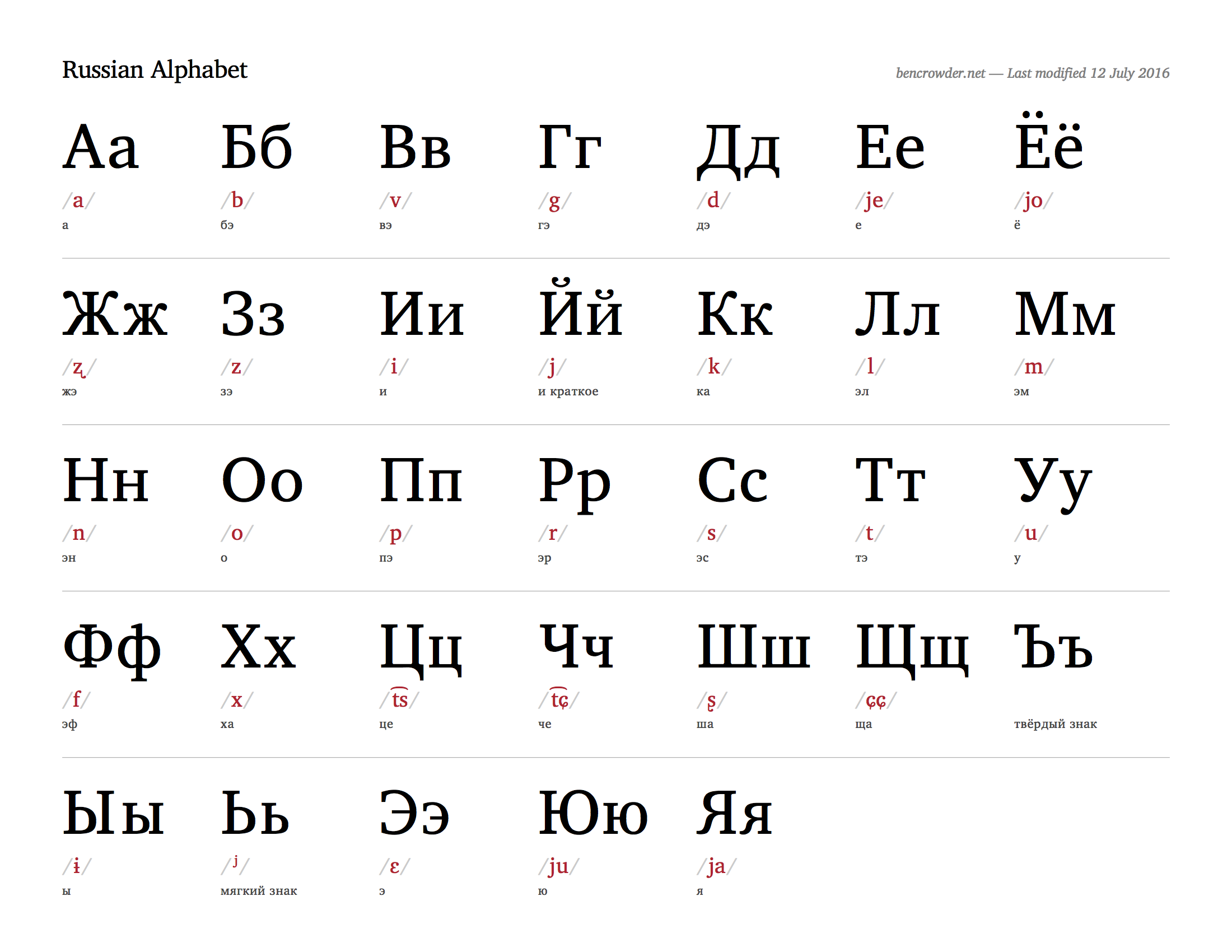
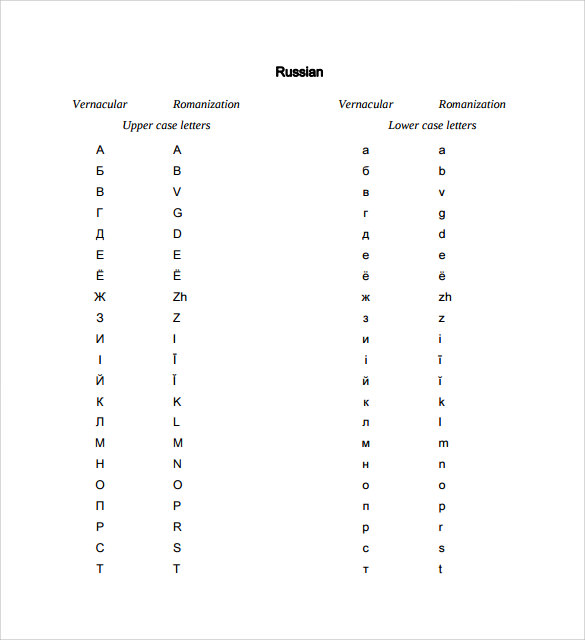
Russian (Русский язык) Russian is an Eastern Slavic language spoken mainly in Russia and many other countries by about 260 million people, 150 million of …
The Russian alphabet uses Cyrillic symbols and consists of 33 letters: 10 vowels, 21 consonants and 2 letters which do not have a sound (instead, they just make the precedeing letter sound harder or softer).

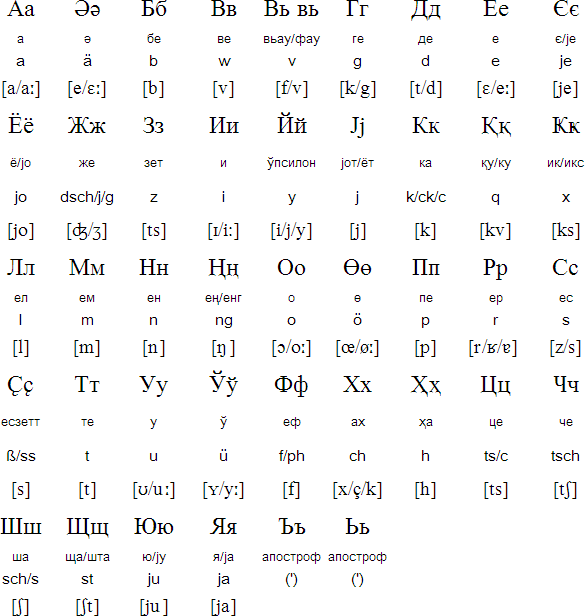
Russian Alphabet. Learning the Russian alphabet is very important because its structure is used in every day conversation. Without it, you will not be able to say words properly even if you know how to write those words.
The Russian alphabet consists of 33 letters, 20 of which are consonants, 11 are vowels and two are signs (the soft sign and the hard sign). The alphabet is adopted from the Cyrillic alphabet which was invented in the 9th century in the First Bulgarian Empire.
The Russian alphabet is easy to learn! Learning the alphabet is the first step to learning the Russian language. Even if you don’t plan to learn the language, knowing the alphabet is great for travelling because you can read all the street and shop signs.
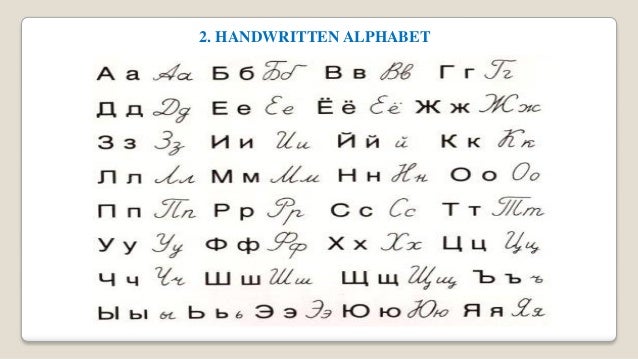
The Russian words in the following list are all written with the Cyrillic alphabet, but if you read them carefully, one word at a time, from top to bottom from the top of Column One, by the time you reach the final word at the bottom of Column Two, you will know the Cyrillic alphabet (as well as a few Russian words).
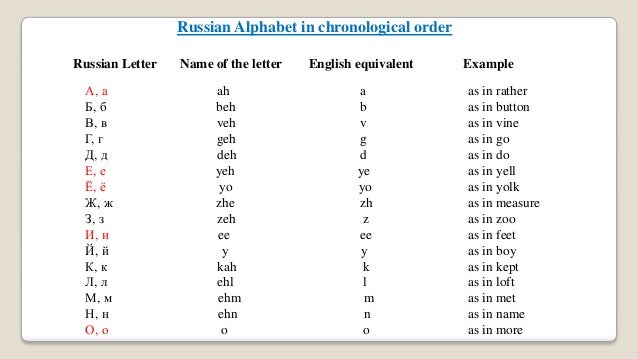

Cyril and Methodius called their alphabet Glagolitsa, or the Glagolitic alphabet. The name comes from the Old Slavic word glagolŭ, which means ‘sound’.